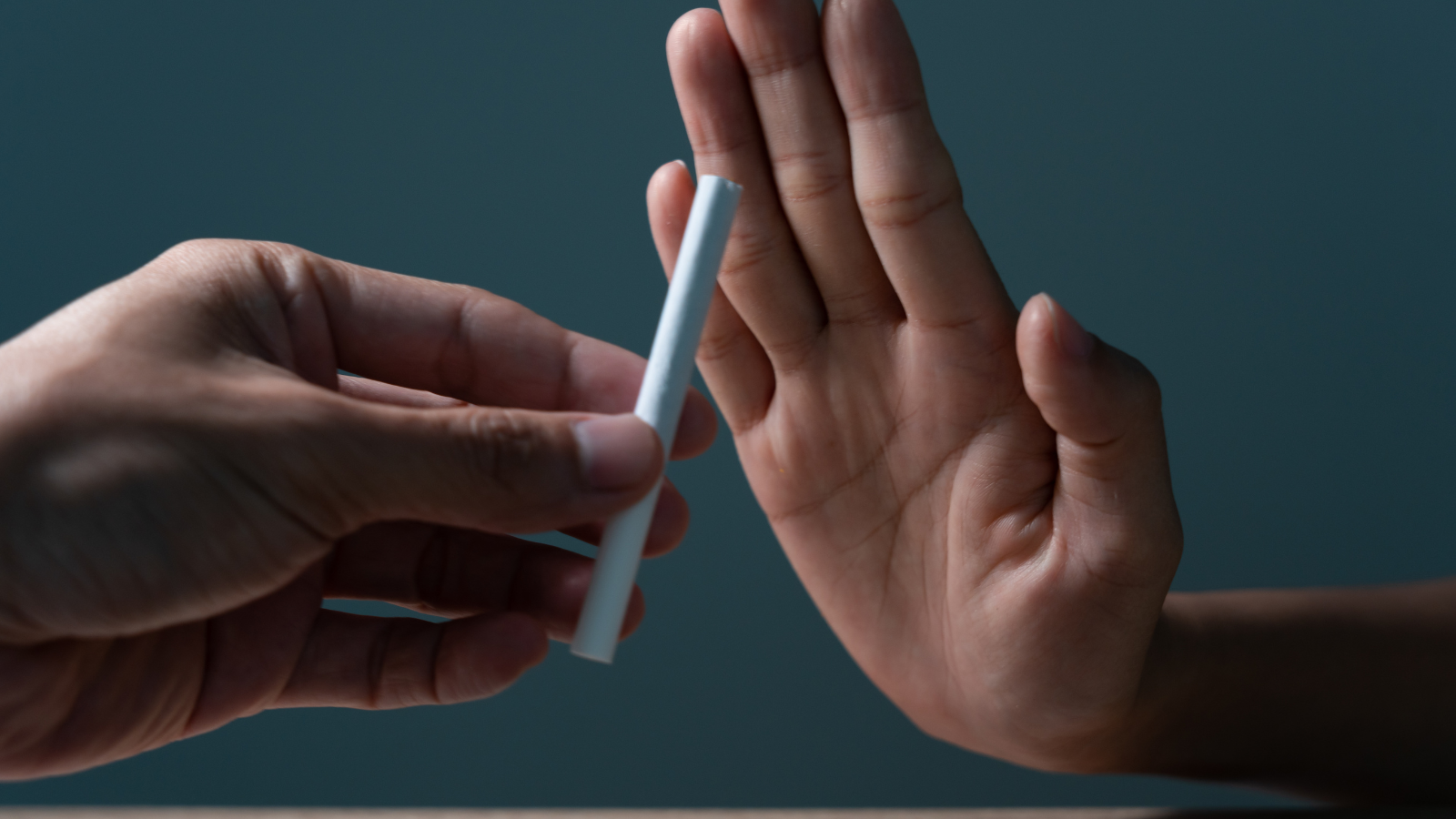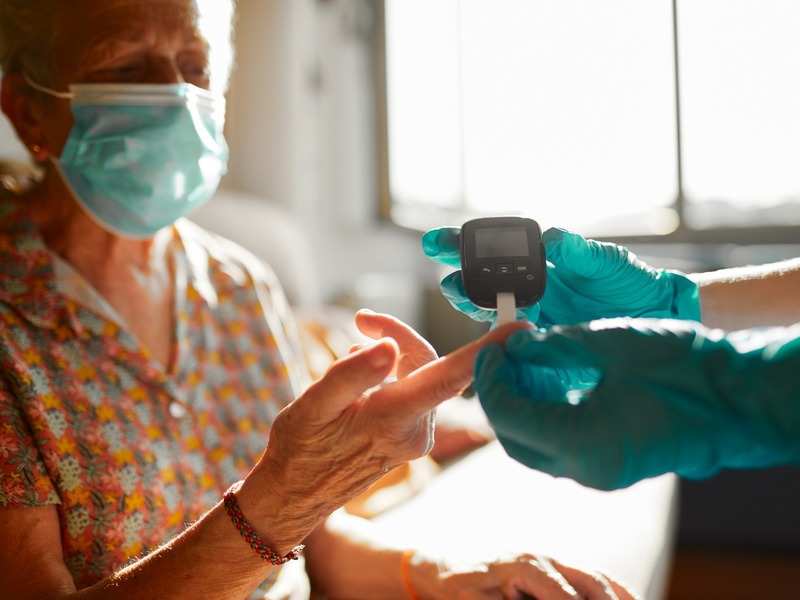COVID diabetes: Why is COVID-19 causing diabetes in some people? Here's what doctors say
Aug 04, 2021
Diabetes is grave comorbidity for coronavirus and is associated with several complications, including severity, increased oxygen requirement, prolonged recovery timelines, and to an extent, mortality. However, for many, a battle with COVID-19 is leading to an altogether new diagnosis of diabetes, or COVID diabetes, as it is now being called.
A recent report published in the International Journal of Endocrinology and Metabolism has also warned about the onset of new diabetes increasingly becoming a post-COVID-complication and a new danger to be scared of.
But what's fueling the rise? Is it COVID, or underlying risk factors? We asked doctors to weigh in on the same...
Can COVID-19 trigger a complication like diabetes?
From the heart to the digestive system, there's been a lot of evidence detailing just how worrisome a battle with COVID-19 could be. Newer studies have also highlighted that the SARS-COV-2 virus can launch a scathing attack on the pancreas, impair cells that produce and regulate insulin, and as a result, cause diabetes.
Doctors are also now worried that the rising blood sugar levels recorded in cases of COVID- without prior history are making management of the disease even more challenging, and leaving patients with a lot more health implications than they once were diagnosed for.
"There are various mechanisms which can trigger high blood sugar post-COVID. For one, COVID-19 virus has been seen to directly affect the beta cells of the pancreas that produce insulin, which can lead to permanent diabetes," shares Dr. Shavial Chandalia, Consultant, Department of diabetology and endocrinology, Jaslok Hospital, Mumbai.
The apparent commonalities between COVID-19 and diabetes, also a vascular disease, both caused by inflammation could also be a grave risk factor allowing the virus to attack the lungs and the pancreas, which could be fueling diabetes as a post-COVID complication, according to Dr. Sunil Kumar Mishra, Director, Endocrinology and Diabetology, Medanta.
Some, like Dr. Arbinder Singal, MBBS (Gold Medalist), DNB, M. Ch (AIIMS, Gold Medalist), CEO& Co-founder, Fitterfly Healthtech, also believe that "intense stressors" such as inflammation caused by cytokines could be a probable reason why hyperglycemia is triggered in patients who are on the road to recovery.
New diabetes and added risk to hospitalization and COVID severity
India, infamously dubbed to be the Diabetes Capital of the world also records the early onset of diagnosis, typically a decade before global averages. The problem fueled by COVID-19 is also adding to the crisis, with doctors seeing both young and old patients come in with symptoms and signs of hyperglycemia.
While there has been an incidental rise in the COVID diabetes cases, the likelihood of developing Type-2 diabetes is more in those who suffered from moderate or severe cases and were put on steroid therapies, according to doctors. The big factor? Severe complications and steroid usage.
"Diabetes, so to speak, is a highly affecting disease in our country, and we are definitely seeing a rise due to previously high caseloads and hospitalizations in recent months. The incidence rate is definitely high. In terms of treatment, we have seen that in some cases of moderate to severe COVID, steroid usage could be what is possibly triggering this problem. Certain steroids, especially when given in high doses can be diabetogenic, and bring in certain unwelcome changes that could be causing diabetes. "
Steroids, largely used to help patients deal with problems of oxygen deprivation and respiratory complications, have been subjected to controversies over indiscriminate and excessive use. Now, as doctors say, the greatest risk of raging sugar levels maybe for those administered steroids or continuing to use steroids weeks after recovery.
Dr. Chandalia and Dr. Mishra also highlight that hyperglycemia is an added risk with steroid usage and must be considered a big warning sign before being administered the same. The damage or the diabetes diagnosis could be temporary, or permanent enough to cause problems.
Undiagnosed diabetes, poor awareness adding to the risks
Dr. Mishra, who has treated some acute cases of post-COVID-hypoglycemia recently also believes that rather than new triggered COVID-diabetes, the bigger problem lies with the undiagnosed cases, which according to the doctor, are more at risk of COVID complications later on.
"There have been cases of in-hospital hyperglycemia, but from what we have seen, the incidental risk is higher for those who have an apparent family history, prediabetic or simply unaware", says Dr Mishra, adding that over 50% of the diabetes cases in India go unnoticed, or aren't diagnosed well.
Prediabetes is also a big risk factor that needs to be taken into consideration. Additional steroid use and COVID complications could put one at risk for unusually high sugar levels or permanently push them into diabetes. For the ones who are 'borderline' or have stable control, the insulin sensitivity could become much worse.
Pandemic-induced sedentary lifestyles are a big risk factor for diabetes
Dr. Singhal believes that the COVID-19 pandemic has very poorly derailed glycemic control for people, even for those without any history, and so agrees Dr. Mishra.
From lack of physical activity, unhealthy eating habits, and patchy focus to screenings and preventive measures, all these factors have acted as big risks for blood sugar flare-ups, which, in turn, has pushed many into prediabetes or made them diabetic without being primarily aware. "There has also been a rise in young-onset of diabetes in the west," shares Dr. Mishra, who believes that many of the cases were simply aggravated by COVID-19.
Doctors also add that COVID-induced diabetes risk is greater for those already at risk- history of a sedentary lifestyle, overweight, high BMI, suffering from PCOS, and hence, must keep a check.
Preventive screenings and monitoring sugar levels vital
While doctors do see a lot of diabetes cases in India, one of the biggest issues could be bleak unawareness about the symptoms, one's disposition, and diabetes risk.
One of the primary things Dr. Mishra and Dr. Chandalia advise patients to invest in is on a glucometer- especially after the age of 35, with or without a COVID risk.
Dr. Chandalia adds that with a lot of new COVID cases, one resultant of COVID-19, "If a COVID patient continues to be on steroids, frequent readings, and monitoring is definitely one way to be in control of your health and know when to seek help."
Dr. Mishra also asserts that monitoring glucose readings is the way to control the disorder. "For people who are suffering from obesity, have PCOS, family history we recommend starting the checks earlier than the recommended age.", he adds.
What are the warning signs and symptoms to be careful of?
Fasting levels over 250-300 should be a cause of concern and demands a doctor's attention. However, with diabetes, a lot of symptoms can go unnoticed at the primary level, or come up late. Nonetheless, it is imperative that patients be careful about critical signs of worry like:
- Excessive thirst
- Too much hunger
- Frequent urination
- Fatigue
- Unexplained weight loss.
Doctors also point out patients to not take diabetes lightly, even if they do not have symptoms. If you have any of the listed risk factors, family history or use steroids, get a check-up done and follow advised treatment.
Apart from stressing the need for preventive screenings, doctors also remind on the importance of maintaining a healthy weight, BMI, timely screenings, healthy lifestyle, and diet to mitigate risk factors and manage the condition.
Disclaimer:
Recent Post

Boosting Immunity During the Monsoon Season

The Sweet Benefits of Chocolate: A Delicious Path to Better Health

Skincare Tips for the Monsoon Season

Celebrating International Yoga Day: Embrace the Health Benefits of Yoga

Healthy and Refreshing Summer Recipes

Celebrating World Environment Day: A Call to Action for a Greener Future
_CAT_1717066221.png)
Staying Hydrated in the Summer: Essential Tips for Beating the Heat

Living Tobacco-Free: Your Journey to Health and Wellness

Tailored Exercise Routines for Achieving Your Fitness Goals

Unveiling the Healing Power of Mindfulness Meditation: How It Transforms Mental Health

